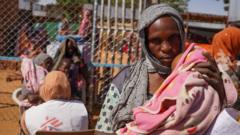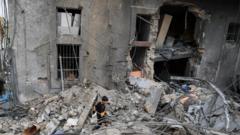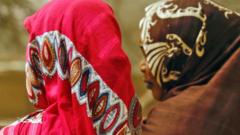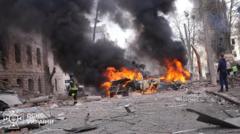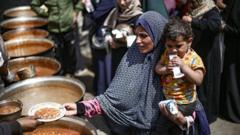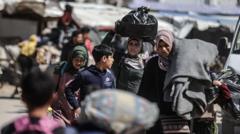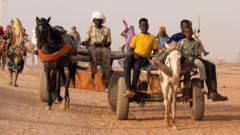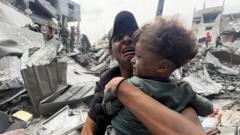The Rapid Support Forces lead by "Hemedti" declare a government, exacerbating tensions and suffering across Sudan.
Sudan's Paramilitaries Establish Rival Government Amid Ongoing Conflict

Sudan's Paramilitaries Establish Rival Government Amid Ongoing Conflict
A new authority emerges in Sudan as paramilitary forces clash with the military, creating a dire humanitarian crisis.
Sudan is witnessing a significant shift in power dynamics as the paramilitary organization, the Rapid Support Forces (RSF), has officially announced the formation of a rival government, igniting further conflict in a war that has already resulted in unprecedented humanitarian turmoil. Mohamed Hamdan "Hemedti" Dagalo, the leader of the RSF, asserted the group is "constructing a viable future for Sudan," indication of their intent to challenge the current military establishment.
This announcement coincided with a high-profile conference in London, aimed at discussing the second anniversary of the conflict, where UK Foreign Secretary David Lammy championed the need for "a path to peace," amidst the continuing violence. Reports indicate that the Sudanese armed forces have conducted airstrikes on RSF positions surrounding el-Fasher, accelerating the exodus of civilians, particularly from the Zamzam refugee camp, now a site of desperate displacement.
In a message released on Telegram, Hemedti emphasized that the RSF's intention is to create a "state of law" rather than one dominated by individual rulers. He expressed a commitment to providing essential services, including education and healthcare, to those affected across Sudan, not just in RSF-occupied regions.
Recent summaries from the United Nations suggest that over 400 individuals have perished from recent clashes attributed to the RSF, with both RSF and army factions facing allegations of war crimes, including genocide and mass sexual violence. The ongoing battle for supremacy between Hemedti and army chief Gen. Abdel Fattah al-Burhan, which intensified on April 15, 2023, has led to a staggering humanitarian catastrophe, culminating in over 150,000 confirmed casualties and upwards of 12 million displaced individuals.
The recent fighting in North Darfur, especially around el-Fasher, has compelled tens of thousands to embark on a hazardous journey to Tawila, often covering 70km (43 miles) on foot, and many arriving in a critical state of dehydration, with reports of children suffering fatal consequences from thirst. Humanitarian agencies have warned of famine-like conditions, jeopardizing more than 700,000 individuals in makeshift camps around el-Fasher, further complicated by rampant security threats obstructing vital aid delivery.
During the London conference, the UK committed an additional £120 million (approximately $159 million) towards vital food and medical assistance, urging the international community not to neglect Sudan. Lammy's impassioned address highlighted the moral obligation to act against the atrocities endured by civilians: "It is wrong to abandon Sudan at a time when reports of beheadings and sexual violence against the youngest are surfacing, and with starvation threatening so many."
The conference advocated for an immediate ceasefire, but the African Union has reiterated its stance that Sudan must not be divided between the military and RSF forces, as the struggle for power and survival continues to escalate.




